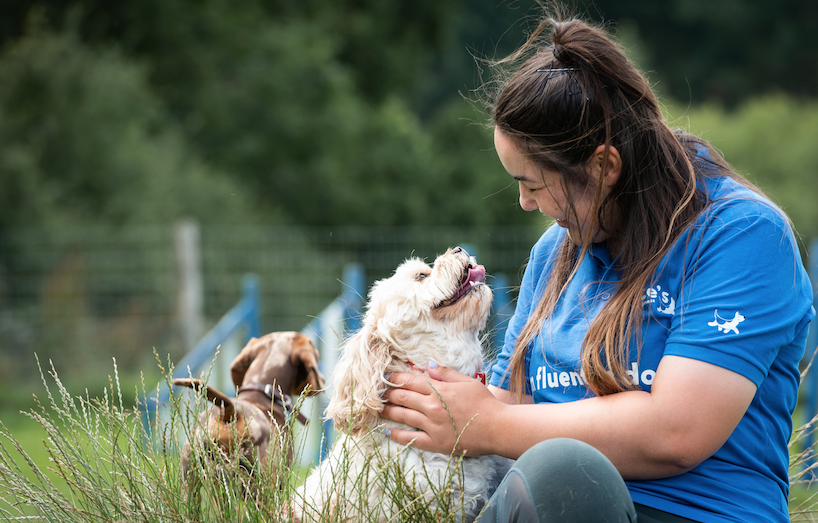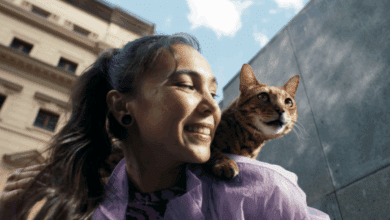
Register to get 1 free article
Reveal the article below by registering for our email newsletter.
Want unlimited access? View Plans
Already have an account? Sign in
Bruce Casalis, founder of Bruce’s Doggy Day Care has been in the industry for over 13 years, caring for the individual needs of every dog that visits one of his centres. He first started out by walking dogs in the park and after seeing the demand for a registered professional, trusted centre, the company soon began to grow.
The first day care was launched in 2008 on a plot with only a few acres of land but has since evolved, and the business now spans across Surrey, Buckinghamshire and Pembury looking after roughly 500 dogs across its seven centres.
However, last year when the UK entered its first lockdown, by April 2020, 46.6% of people transitioned to working from home as a result of the Covid-19 pandemic with the government recording in May 2020 around 8.9 million employments on furlough. This in turn could have affected a business that predominantly benefits from people working away from their pets.
Casalis explains that in March 2020, the business was only open for key workers and that at one point 95% of his workforce were on furlough, which he claims “saved the company” and allowed it to retain all of its staff. He recounts that the main areas within the business that saw a reduction was with dogs who would usually spend between four to five days a week at the centres. He also says the company saw a drop in its overnight care section of the business as people were unable to travel.
He expresses his gratitude towards the scheme, calling it a “godsend”, as without the government support, the company would have been in a much different situation. However he says that since March 2021, the company has seen very “little use” of the furlough scheme.
Casalis reveals that despite the impact of the pandemic, some people still “wanted to send their dogs” especially during lockdown with the UK welcoming an additional 3.2 million pet owners. The majority of these households bought a puppy, with them often needing additional training and security when they spend their first few nights away from their owner.
Furthermore, Casalis argues that even though people are working from home, they still want their dog to have that “enrichment, socialisation and regiment stimulation” in their life and thus have continued with the doggy day cares which provide much more than an open space to run in.
Benefits of the centres
So why do people still see pet care centres as an attractive proposition for their pets despite the new ways of living? Brian Faulkner, a vet for Petplan insurance wrote that a good day care facility will provide “plenty of opportunities for a dog to be “stimulated”, whether through individual attention or through group activities with the other dogs.
He suggests that even by sending a dog for just one day per week “can be enough to make a significant difference” to their behaviour and ability to socialise with others.
Anna Ewers Clark, PDSA vet, advises that a “well-run, responsible” doggy day care can be great for dogs, especially for owners who can’t be at home with their pets all day. She says it can allow them to mix and socialise “safely” with other dogs and help them get used to different people outside of their household.
Clark suggests that the centres can also help prevent separation anxiety, she says this will be “especially important” as the UK starts to move out of lockdown as pets will have to readjust to being by themselves. Dr Samantha Gainesm, RSPCA dog welfare expert, acknowledges that many dogs can struggle to spend time home alone and often become distressed in the absence of their owners.
While sending a pet to doggy day care won’t teach them that “being by themselves is okay or replace the company of their owner”, it can help reduce the amount of time pets are on their own, she concludes.
Furthermore, Casalis suggests that doggy day cares “are more than just socialisation”, he claims they are about the “individual bond and relationship” the company creates with every single dog. Casalis believes that “unlocking that side of mental stimulation” for a pet is just as vital as the physical side, through exercise.
Another benefit of a doggy day care is that unlike trusting a pet with a friend or a walker, the centres offer that additional level of security and safety. In recent months this has become of paramount importance with dog thefts in the UK on the rise.
The rise of dog thefts
Over the past year there has been a surge in the number of dogs being kidnapped in the UK with many of them in the care of mobile groomers or walkers at the time when they were stolen. The DogLost charity reported a 170% surge in ‘dognapping’ over the last year from 172 dogs reported stolen in 2019 to 465 dogs in 2020.
Responding to the surge in stolen pets, Casalis aims to ease dog owners’ minds about the situation by claiming that the care centres have “several procedures and risk assessments” in place to ensure “maximum safety” for the dogs in its care. He likens wandering into the centres the same way as trying to enter a children’s nursery, something that “just doesn’t happen”.
He adds that the difference between the centres and parks for example, is that everything within the vicinity of the company is within its control. This includes the grounds, CCTV and staff through measures such as additional fences and locked premises making it a trusted choice for dog owners who don’t want to leave their pets unattended.
A spokesperson for RSPCA says the charity also encourages all dog owners to take “extra precautions” to protect their pets from thieves by neutering their pets, ensuring they are microchipped with up-to-date contact details registered and ensuring they wear a collar with contact details embroidered or an engraved ID tag.
The charity also advises owners to “never leave their pets tied up outside shops or alone in cars”. Adding that owners should ensure their gardens are secure with gate locks, as well as training their pets to have a good recall to make sure they don’t stray too far when off-lead on walks.
Although the surge in dog thefts has risen, knowing there are measures and secure places to send pets will ease owners’ mind in the long run especially as the UK prepares to ease lockdown restrictions.
Where the company is heading
As the UK comes out of lockdown on 12 April with non-essential retail set to open, international travel will also eventually return, with pet care centres expecting a rise in demand for their services as owners look to book their next getaway..
With a further return of demand on the horizon, Casalis suggests expansion is always on his mind and he hopes to give more pet owners a chance to benefit from the secure locations and regimen nourishment that the centres provide.
He says: “It’s really exciting to be part of such a fast growing industry. I think people are really seeing the benefits of daycare and how it can take away the stresses of everyday life for them and their dogs.
“As long as all of the correct procedures are in place and the wellbeing of the dogs is at the forefront of all doggy day care businesses, it can only be a positive to see more day cares operating.”










